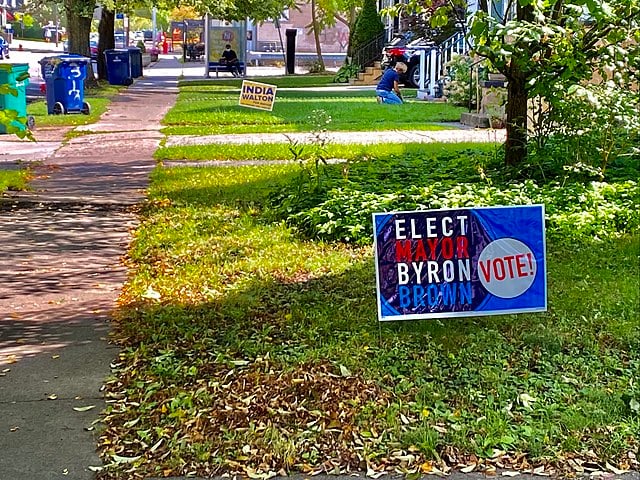In 2018, shortly after Alexandria Ocasio-Cortez shocked New York by beating Joe Crowley in the District 14 Democratic primary, the former U.S. Senator from Connecticut, Joe Lieberman, had something to say. In the pages of the Wall Street Journal, he encouraged Crowley to run in the general election to defeat Ocasio-Cortez.
Lieberman was speaking from experience. When he lost the Democratic primary in 2006, he proceeded to run in the general, defeating his more liberal challenger, Ned Lamont, in the expanded, and more conservative electorate.
Crowley, however, did not follow suit. Ocasio-Cortez sailed to victory in 2018, and her constituents reelected her overwhelmingly for a second term in 2020.
Again in 2020, when Phara Souffrant Forrest defeated Walter Mosley in the New York Assembly District 57 Democratic primary, the vanquished incumbent contemplated running in the general election. But he ultimately backed down.
All told, New York City-DSA (Democratic Socialists of America) has sent nine of its endorsed candidates into the State Senate, State Assembly, City Council, and U.S. House of Representatives. In not a single case did a losing candidate from the primary run a serious campaign in the general.
So what gives in Buffalo?
In June, the democratic socialist India Walton, with the backing of the Democratic Socialists of America and the Working Families Party, defeated incumbent Mayor Byron Brown in the Democratic primary. But this week, Brown pulled off an impressive feat, and defeated Walton with a general election write-in campaign.
While the likes of New York Senators Chuck Schumer and Kirsten Gillibrand endorsed Walton, institutional support was not nearly as ubiquitous as is typical for Democratic primary winners. U.S. Rep. Tom Suozzi traveled all the way from Long Island to Buffalo to support Byron Brown, and State Senator Kevin Parker made the trek from Brooklyn to do the same. And several unions also stuck with Brown through the general.
Politics is, in part, contingent on the whims of individuals, so no doubt the Byron Brown write-in campaign was about Byron Brown—his decision to run, and his efforts to corral support. But still, the divided institutional support requires some explanation, especially given the nine DSA-endorsed candidates in New York City who did not face such a challenge.
I think there are three key factors, each of which amplifies the next.
First, and perhaps most importantly, one democratic socialist with executive power is scarier to centrist Democrats than a dozen of them with legislative power. Take Bernie Sanders. His career began when he won the mayor’s office of Burlington, Vermont by a margin of 10 votes. It’s far easier to lambaste democratic socialists as ineffective when they sit in the legislature, because each legislator only has so much power. But a competent executive—which then-Mayor Sanders turned out to be—can build genuine and enduring trust with the electorate.
Second, it’s Buffalo. New York City has a tradition of left-wing legislators going back decades. That fellow traveler of the Communist Party, Vito Marcantonio, represented East Harlem in the U.S. House of Representatives for more than a decade beginning in 1934. Communists and Socialists served on the City Council and in the State Legislature in that era. It’s almost “normal” if the hard left holds a few legislative seats out of New York City. But Buffalo? If it turns out that democratic socialism has resonance in Buffalo, who knows where else it might take root.
Third, India Walton is a Black woman. Last month, Democratic State Committee Chair Jay Jacobs likened India Walton to David Duke of the Ku Klux Klan. It was a truly astounding analogy, and one that might have betrayed more about Jacobs’s own inner world than he meant to reveal.
Black women and Black men are increasingly running New York State. Andrea Stewart-Cousins runs the State Senate, and Carl Heastie runs the Assembly. In 2018, New York’s Attorney General Letitia James made history by becoming the first Black woman to win statewide office.
The prospect of that trifecta might have been just too much for the Jay Jacobses of this great state. A Black female democratic socialist vying for executive power outside of the five boroughs? That terrifying combination couldn’t help but bring to mind images of the KKK, and encourage one to work doubly hard on a write-in campaign.
India Walton ultimately lost the battle to an incumbent who mounted an impressive comeback, using literal stamps to make his write-in campaign viable. What remains to be seen – in New York and beyond – is who will win the war.
